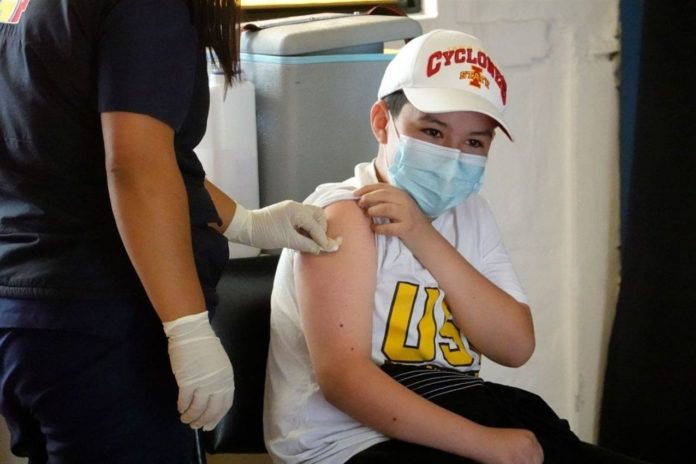While risk factors for hospitalizations and poor outcomes in adults are widely documented, little is known about clinical variables related to COVID disease severity in children.
A group of clinicians at Monroe Carell Jr. Children’s Hospital at Vanderbilt reviewed data from 45 children’s hospitals around the country in order to aid mitigation methods for children who are at high risk of having severe COVID disease—20,000 cases were included.
“This is one of the largest multicenter studies of children with COVID-19 in the United States,” said the lead author of the study Dr James Antoon.
“And given the recent, concerning increases in COVID cases nationwide and the fact that the vast majority of children remain unvaccinated and susceptible, these findings should be taken into account when considering preventive strategies in schools and planning vaccinations when available for children less than 12 years of age,” he said.
The study, which was published in the Journal of Hospital Medicine, looked at the characteristics that contributed to severe disease and poor health outcomes in children with COVID who were admitted to the hospital. These included, among other things, older age and chronic co-morbidities such as obesity, diabetes, and neurologic disorders.
“These factors help identify vulnerable children who are most likely to require hospitalization or develop severe COVID-19 disease,” said Antoon.
“Our findings also highlight children who should be prioritized for COVID-19 vaccines when approved by the FDA.”
Approximately one out of every four children admitted to the hospital with COVID had severe disease and required ICU treatment between April and September of 2020, according to the retrospective cohort research.
“Across the country there is a raging debate on how best to protect children and schools from COVID-19,” said Antoon.
“Some children are at increased risk for more severe disease and many of them are not yet eligible for vaccination against COVID.
“With schools opening and some already in session, these children need to be protected by vaccinating as many people as possible while also using practical strategies to limit spread, such as masking, distancing and ventilation.”
The study’s researchers anticipate that the findings will bolster mitigation methods that were most successful for children and adolescents during the epidemic, such as remote learning, social distancing, hand-washing, and mask-wearing for both students and teachers.
Photo by RODRIGO BUENDIA/AFP via Getty Images
